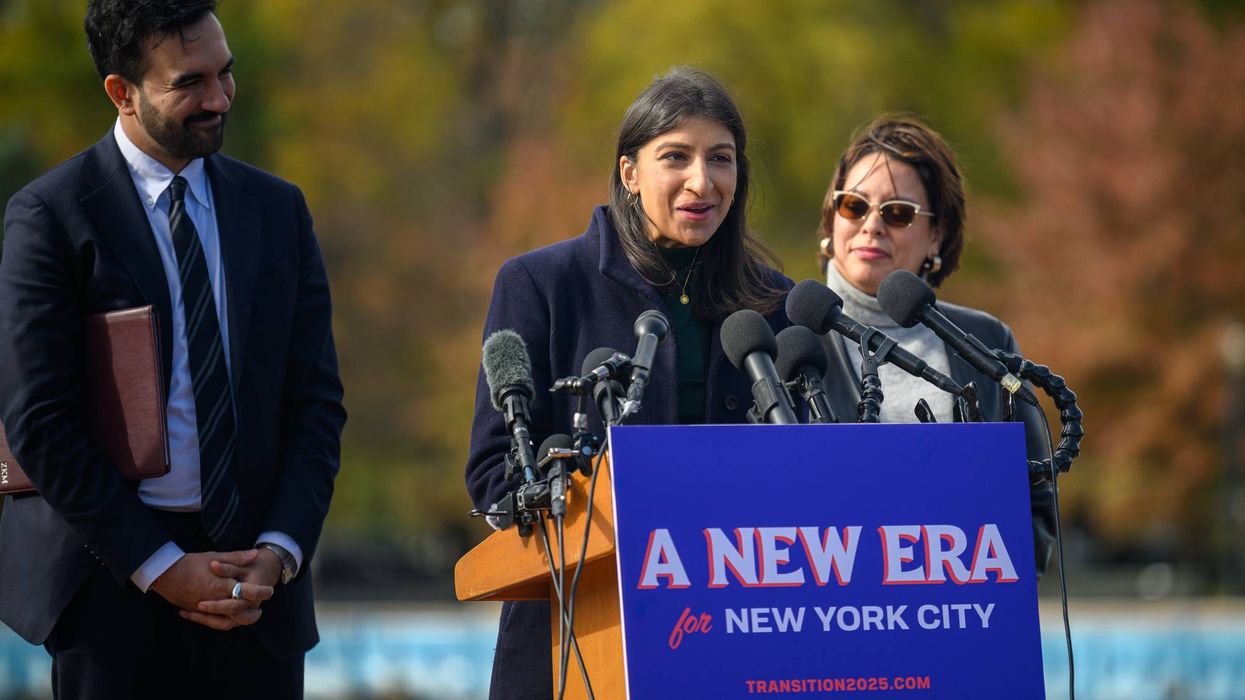February, 04 2010, 10:30am EDT

Vietnam: Expanding Campaign to Silence Dissent
Award-Winning Writers Put on Trial for Seeking Peaceful Reforms
NEW YORK
The Vietnamese government should immediately drop all charges and free the prominent writer and democracy activist Tran Khai Thanh Thuy, Human Rights Watch said today. She is to be put on trial February 5, 2010, on assault charges after thugs attacked and beat her in front of her home, as undercover police looked on.
Tran Khai Thanh Thuy and Pham Thanh Nghien, who was sentenced to prison on January 29 on charges of disseminating anti-government propaganda, are both recipients of the prestigious Hellman/Hammett award, which honors writers who have been victims of political persecution.
"Courageous women such as Tran Khai Thanh Thuy and Pham Thanh Nghien face years behind bars rather than being able to contribute to the country's development," said Brad Adams, Asia director at Human Rights Watch. "When will the Vietnamese government stop locking up peaceful activists who simply have different ideas and the courage to express them?"
In defense of the Vietnamese Communist Party's crackdown on dissent, the party's general secretary, Nong Duc Manh, said on February 2, "We struggle against all the ... hostile forces by preventing them from profiting from...democracy, human rights, multi-partyism and pluralism to sabotage the Vietnamese revolution."
The trials of the two women are the latest in a recent string of political trials of dissidents arrested during 2009. At least 17 dissidents have been sentenced to prison since October.
"None of these activists should be in prison," Adams said. "They are being targeted for their legitimate and peaceful activities as human rights defenders, democracy campaigners, dissident writers and political bloggers."
An established novelist and political essayist, Ms. Thuy, 50, was arrested the evening of October 8, 2009. Earlier that day, police stopped her from travelling to Hai Phong to attend the trials of fellow dissidents. They ordered her to return to her home in Hanoi, where that evening she and her husband were harassed and attacked by thugs.
Ms. Thuy, who suffered injuries to her head and neck, was arrested after the attack and detained at Dong Da police station in Hanoi on charges of "intentionally inflicting injury on or causing harm to the health of other persons" under article 104 of Vietnam's Penal Code. On October 19, she was moved to Hoa Lu prison in Hanoi. Since her arrest, her family has been denied contact with Ms. Thuy, who suffers from diabetes and tuberculosis.
Ms. Thuy has played a key role in Vietnam's besieged democracy movement. In 2006, she started an association for victims of land confiscation (Hoi Dan Oan Viet Nam), helped found the Independent Workers' Union of Vietnam, and joined the editorial board of the pro-democracy bulletin To Quoc (Fatherland), which is printed clandestinely in Vietnam and circulated on the internet. Up until five weeks before her last arrest, she was also an active blogger (still available online at: https://trankhaithanhthuy.blogspot.com/).
Since emerging as an activist in 2006, Ms. Thuy has been repeatedly denounced and humiliated in public meetings organized by the authorities, including a "People's Court" in 2006, at which police gathered 300 people in a public stadium to insult her. In November 2006 she was dismissed from her job as a journalist and placed under house arrest to bar her from meeting with international journalists and diplomats attending the Asian Pacific Cooperation Summit in Hanoi. In April 2007 she was arrested and held incommunicado for more than nine months at B-14 Detention Center in Hanoi. After her release in January 2008, she continued to encounter relentless harassment from police, local officials, and orchestrated neighborhood gangs.
During 2009, for example, thugs attacked her house at least 14 times, throwing excrement and dead rodents at her gate. They also inserted metal into her front door lock on two occasions, locking her out of her own home. When she went to the police to file a complaint, they refused to take any action, even though neighbors reported that police were watching during some of the attacks on her home.
"Charging the victim of a beating with assault is yet another example of Vietnam's Kafkaesque efforts to silence government critics," Adams said. "The thugs who attacked her, the people who sent them, and the police officers who refused to intervene should all be brought to justice."
Ms. Nghien, 33, a writer and democracy campaigner, was sentenced by the Haiphong Court on January 29 to four years in prison followed by three years under house arrest on charges of spreading anti-government propaganda under article 88 of the penal code. As with Ms. Thuy, Ms. Nghien's family has not been allowed to visit her since her arrest in September 2008.
In 2007, when the wool company where Ms. Nghien worked went bankrupt, she began doing advocacy work on behalf of landless farmers and writing articles calling for human rights and democracy. In July, 2007, authorities barred her from attending the trial of her close friend, the democracy campaigner Le Thi Cong Nhan. After that, Ms. Nghien was repeatedly harassed by the police, who regularly summoned her for aggressive questioning.
In June 2008, Ms. Nghien was detained after signing a letter with fellow activists requesting authorization from the Public Security Ministry to organize a peaceful demonstration against China's claims to the Spratley and Paracel islands. A few days later, she was attacked and beaten by thugs, who threatened her life if she continued "hostile actions" against the state. In September 2008, she was arrested along with other democracy activists during a government crackdown that aimed to prevent planned anti-China protests at the Chinese Embassy in Hanoi.
Human Rights Watch called on Vietnamese authorities to guarantee the physical and psychological well-being of both women in prison, including providing needed medication and medical treatment and allowing for regular family visits. Human Rights Watch has documented systematic use of torture of political prisoners in Vietnam, including beatings, electric shock, confinement in solitary, dark cells, and prolonged shackling.
Human Rights Watch noted that the victims of the government's crackdown include established writers, journalists, businesspeople, and lawyers such as Le Cong Dinh, who was sentenced to prison last month on subversion charges. A long-time journalist for the state media, Ms. Thuy is a member of the Association of Hanoi Writers, the Club of Women Poets, the Club of Humoristic Journalists, and the Association of Vietnamese Journalists. She is also an honorary member of English PEN.
Other recipients of the Hellman/Hammett award who have been sentenced to prison in recent months include Nguyen Xuan Nghia, a 2008 recipient, and Tran Anh Kim, a 2009 recipient.
"Vietnam's intolerance for different opinions has recently reached a new low as the government tightens its grip in the run-up to next year's party congress," Adams said. "Unless Vietnam's donors make it clear that these abuses are completely unacceptable, the downward trend will only get worse."
Human Rights Watch is one of the world's leading independent organizations dedicated to defending and protecting human rights. By focusing international attention where human rights are violated, we give voice to the oppressed and hold oppressors accountable for their crimes. Our rigorous, objective investigations and strategic, targeted advocacy build intense pressure for action and raise the cost of human rights abuse. For 30 years, Human Rights Watch has worked tenaciously to lay the legal and moral groundwork for deep-rooted change and has fought to bring greater justice and security to people around the world.
LATEST NEWS
Trump’s Lax Approach to Antitrust Helps Spur Banner Year for Corporate Mergers
"Trump’s new antitrust enforcers have demonstrated a willingness to facilitate dealmaking through an uptick in early terminations and settlements," said the American Economic Liberties Project.
Dec 26, 2025
Global corporate mergers surged to near-record highs in 2025, driven in part by US President Donald Trump's lax approach to antitrust enforcement.
The Financial Times reported on Friday that global dealmaking in 2025 topped $4 trillion, including 68 mergers worth $10 billion or more, highlighted by Netflix's $72 billion bid to buy Warner Bros. Discovery and a proposed $85 billion mega-merger between railway giants Union Pacific and Norfolk Southern.
The US alone accounted for $2.3 trillion worth of mergers and acquisitions, which the Financial Times said highlighted the Trump administration's role in green-lighting corporate consolidation.
"Top dealmakers said that the Trump administration’s push to loosen regulation had encouraged companies to explore tie-ups that they might otherwise have been hesitant to pursue," the Financial Times explained.
Andrew Nussbaum, co-chair of the executive committee at law firm Wachtell, Lipton, Rosen & Katz, told the Financial Times that corporate leaders "see a willingness of the regulators to engage in constructive dialogue" under the second Trump administration, which has given them "a willingness to take on regulatory risk for transactions that are strategic."
The American Economic Liberties Project has also taken note of the Trump administration's role in shepherding through big mergers, and created a Trump Merger Boom tracker earlier this year to document the massive wave of corporate consolidation.
In its analysis of the administration's lax approach to antitrust enforcement, the American Economic Liberties Project said that "Trump’s new antitrust enforcers have demonstrated a willingness to facilitate dealmaking through an uptick in early terminations and settlements."
"Despite pro-enforcement rhetoric early on from Trump’s heads of the FTC and DOJ Antitrust Division," the American Economic Liberties Project added, "it’s becoming increasingly clear that agency leadership is having trouble making their decisions in a vacuum—with a quiet tide of deals granted to companies that have been friendly to the White House."
Keep ReadingShow Less
Lina Khan ‘Scouring New York City Laws’ to Help Zohran Mamdani Drive Down Prices
Khan and members of her team are reportedly "dusting off a little-used 1960s price-gouging statute" in an effort to bolster the mayor-elect's affordability push in New York City.
Dec 26, 2025
Former Federal Trade Commission chair and antitrust trailblazer Lina Khan is reportedly poring over New York City's laws to help Democratic Mayor-elect Zohran Mamdani fulfill the central promise of his campaign: making the metropolis more affordable.
According to the New York Times, Khan—in her capacity as co-chair of the mayor-elect's transition team—"has spent weeks scouring New York City’s laws to find dormant or underused mayoral authority that could allow Mr. Mamdani to take action in a hurry."
Potential actions "include specific attempts to drive down apartment rental fees and utility costs and compel businesses to be more transparent about pricing," as well as "dusting off a little-used 1960s price-gouging statute and policing new protections for food delivery workers," the Times reported, citing three unnamed people familiar with internal discussions.
As head of the FTC under former President Joe Biden, Khan took groundbreaking legal action against major corporations such as Amazon and, in the words of one antitrust advocacy group, "reinvigorated enforcement of the Robinson-Patman Act, a long-dormant law designed to prevent price discrimination by big corporations, through two separate cases against PepsiCo and Southern Glazer’s—major victories for smaller and independent businesses."
Khan, according to the Times, hopes to spur similar action in New York City. Members of her team, which includes former federal regulators, have "studied a 1969 consumer protection law meant to prohibit 'unconscionable' business tactics, to potentially target hospitals and sports stadiums where consumers typically have little choice but to pay high prices for products that are cheaper elsewhere."
Additionally, the newspaper reported, "they have looked at whether food delivery companies, which wield significant power in the city, are complying with laws that protect their drivers, and whether landlords are complying with a newly enacted law barring many real estate brokers from collecting thousands of dollars in fees."
Douglas Farrar, a spokesman for Khan, told the Times that the former FTC chair and her team have "worked closely" with the Mamdani transition "to provide key research support on ideas for hitting the ground running."
Keep ReadingShow Less
Bezos-Owned Newspaper Bashes Medicare for All in Christmas Day Editorial
The Washington Post editorial predictably ignores research showing that a single-payer system would save hundreds of billions of dollars—and tens of thousands of lives—each year.
Dec 26, 2025
An editorial published on Christmas by the Jeff Bezos-owned Washington Post inveighed against supporters of Medicare for All in the United States, pointing to the struggles of Britain's chronically underfunded National Health Service as a "cautionary tale" while ignoring research showing that a single-payer system would save the US hundreds of billions of dollars and tens of thousands of lives each year.
The editorial, headlined "Socialized medicine can’t survive the winter," laments the "religious-like devotion to the NHS" in the United Kingdom even as "hospital corridors overflow and routine procedures get canceled due to a catastrophic event commonly known as 'winter.'"
The Post editorial board, led by opinion editor Adam O'Neal, waves away expert analyses showing that the UK government is underinvesting in its healthcare system relative to other countries in Europe, resulting in the kinds of problems the Thursday editorial attributed to the supposedly inherent flaws of single-payer systems.
"This is the dark reality of single-payer and a cautionary tale for the third of Americans who mistakenly believe Medicare for All is a good idea," the editorial declared ominously.
The editorial understates Medicare for All's popularity among US voters. A recent Data for Progress survey found that even after hearing common opposing arguments, 58% of voters strongly or somewhat support improving Medicare and expanding it to cover everyone in the US.
A separate poll conducted by GQR Research found that 54% of voters nationally, and 56% in battleground districts, support Medicare for All. US Rep. Pramila Jayapal (D-Wash.), the co-leader of the Medicare for All Act in the House, is reportedly planning to present those findings to colleagues next month as she pushes Democrats to rally behind her legislation ahead of the critical midterm elections.
Welcome to the newest co-sponsors of my Medicare for All bill in the House!
Medicare for All is not only good policy — as premiums skyrocket for millions of Americans — it is incredibly popular. Let’s keep building momentum for universal health care and get this passed! pic.twitter.com/k5sg7hEkYR
— Rep. Pramila Jayapal (@RepJayapal) December 25, 2025
The renewed push for Medicare for All comes as the corporate-dominated healthcare status quo hits Americans with massive premium hikes stemming from congressional Republicans' refusal to extend Affordable Care Act tax credits.
Predictably, the Post's editorial board—which Bezos has instructed to write "every day in support and defense of two pillars: personal liberties and free markets"—neglected to mention the myriad horrors of the United States' for-profit system in its diatribe against Medicare for All.
The editorial also ignores research showing potentially massive benefits from a transition to Medicare for All, which would virtually eliminate private insurance while providing comprehensive coverage to everyone in the US for free at the point of service.
One study published in The Lancet estimated that a Medicare for All system would save more than 68,000 lives and over $450 billion in healthcare expenditures annually.
An analysis by Yale researchers calculated that "if the US had had a single-payer universal healthcare system in 2020"—which marked the onset of the Covid-19 pandemic—"nearly 212,000 American lives would have been saved that year" and "the country would have saved $105 billion in Covid-19 hospitalization expenses alone."
Keep ReadingShow Less
Most Popular


